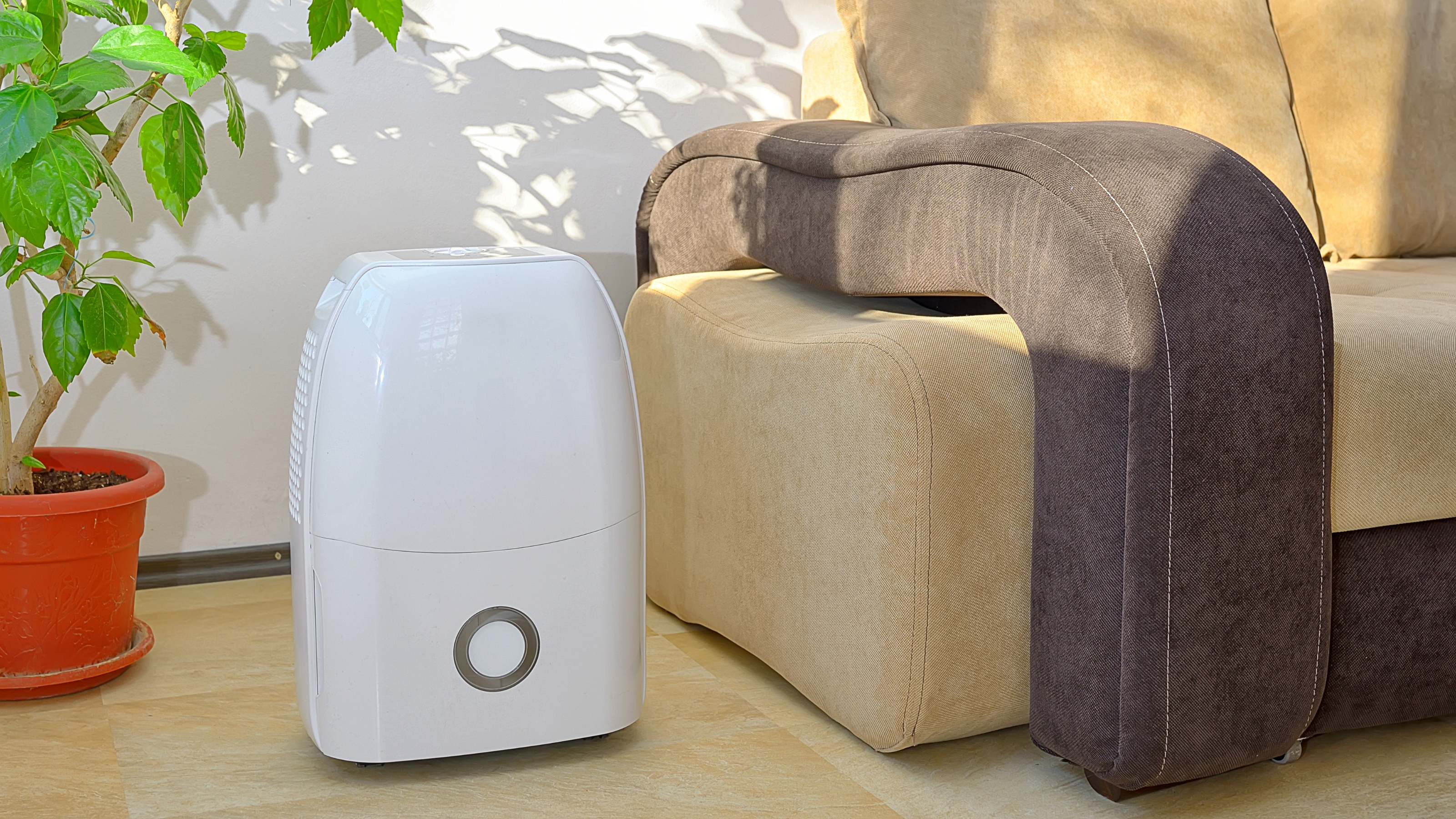When should you use a dehumidifier?
Wondering when you should use a dehumidifier? We’ve spoken to the experts and got the lowdown


Get small space home decor ideas, celeb inspiration, DIY tips and more, straight to your inbox!
You are now subscribed
Your newsletter sign-up was successful
Do you know how and when you should use a dehumidifier in your home to achieve the best results? If the answer is no, you’ll be pleased to know that we’ve been doing a little digging into the ins and outs of dehumidifier best practices and what it takes to use a dehumidifier effectively.
If you’re going to splurge on a top-rated dehumidifier in a bid to reduce the humidity in your home, you’re going to want to know how to get the most out of it. This is why it’s so vital to understand when using a dehumidifier can be beneficial and why.
Got yourself a dehumidifier but not quite sure how and when to use it? I’ve spoken to bonafide dehumidifier experts about when a dehumidifier is beneficial.
When to use a dehumidifier
If you’re keen to find out when to use a dehumidifier to see the most benefit from it, such as how to use a dehumidifier to stop condensation, I’ve rounded up all the info you need.
When is the best time to use a dehumidifier?
You can use a dehumidifier (like this HomeLabs dehumidifier from Amazon that has over 40,000 five-star reviews) in your home whenever you like but to get the most benefit from the device, it’s worth being mindful of when you use a dehumidifier and how you use it. With that in mind, in what instances is it a good idea to crank up your dehumidifier?
If you've got areas of your home that always seem to be damp or have lots of condensation, then it's probably a good idea to use a dehumidifier.
Muffetta Krueger, Cleaning Expert and Founder of Muffetta Domestic Assistants, says: "If you're dealing with persistently damp areas like basements, crawl
spaces, or laundry rooms, a dehumidifier is your trusty ally in the fight
against moisture.
"Say goodbye to condensation on windows and mirrors. When surfaces are
sweating more than you are, it's time to let the dehumidifier work its
magic."
Get small space home decor ideas, celeb inspiration, DIY tips and more, straight to your inbox!
If you notice areas in your home that always smell damp or must, it's worth popping on a dehumidifier.Krueger says: "Unpleasant musty smells are a red flag for mold and mildew. Deploy the dehumidifier to eliminate these odors by kicking excess moisture to the
curb."
Or, if you fall foul to water damage, a dehumidifier can be your saving grace.Krueger says: "After a watery mishap, whether it's a leaky roof or a burst pipe, a
dehumidifier is your first responder. It prevents mold from setting up camp
and keeps your home dry and cozy."
If you notice that your home feels overly humid, then this is also a good time to put your dehumidifier to good use. Christine Kingsley, a US Advanced Practice Registered Nurse (APRN) and the Health and Wellness Director of Lung Institute says: "When your home feels humid, you’ll notice condensation on your windows, musty odors, a damp basement, rotting wood, and mold or mildew growth.
"You’ll also notice that your home feels either hot and sticky or cold and clammy. If you have family members with dust mite allergies, you’ll notice them experiencing more flare-ups. When any of this happens, it’s time to use a dehumidifier."
How often should you use a dehumidifier?
Should you use your dehumidifier day in, day out? Or, is it best to only run your dehumidifier at certain times? How often you need to use your dehumidifier in your home will depend on a range of factors, such as the season, your home, and the climate.
You don't need to leave your dehumidifier on 24 hours a day, 12 hours should be plenty of time to reduce the humidity within your home. It's recommended that, in order to achieve a good level of humidity in your home, you run a dehumidifier on a regular basis, until the humidity levels and excess water vapor in your home are under control.
That said, because each dehumidifier (like this Costway dehumidifier from Target) differs in terms of how it runs and how powerful it is, it is worth taking into account the quality of the dehumidifier in terms of how long it needs to run. It's also important to think about the starting rate of humidity in your home, your dehumidifier's rate of extraction, and the target humidity you want to achieve. To ensure the best results, researching the best dehumidifiers to choose from is a good idea.
FAQs
What should I do if a dehumidifier isn't working?
If your home still feels overly humid despite running a dehumidifier, it's a good idea to attempt to source the reason for this. It may be that your home has a structural issue that's increasing the amount of water vapor in the air and adding to the humidity.
What is a good humidity level for your home?
Krueger says: "Keep humidity levels between 30-50%, and you'll have a home that's inhospitable to those pesky spores."
Kingsley says: "Before using a dehumidifier, it’s incredibly important to know your home’s indoor humidity levels. Home humidity levels should always be within the 30% to 50% range, as it’s the healthiest and safest level.
How can you check home hummidity levels?
Kingsley says: "To know if you have sufficient humidity levels, it’s best to use a hygrometer or a smart thermostat. If you don’t have one, you can easily figure out if you need to use a dehumidifier."
Now that you know when to use a dehumidifier to achieve the best results, you might be wondering about how to clean a dehumidifier in order to ensure that it runs as effectively and as efficiently as possible. For a dehumidifier that works effectively, it's important to make regular maintenance a priority.
If you've noticed that condensation is an issue in your home, you might be wondering what else you can do, aside from using a dehumidifier, to combat the problem. Our guide to stopping condensation in your home should help to get any condensation issues under control.

Hi! I’m Beth Mahoney and I’m a former staff writer at Real Homes. I’ve been a journalist for the national press for the past six years, specializing in commerce and trends-related lifestyle articles, from product reviews and listicles to guides and features. With an eye for pretty things (think: quirky wall prints, scalloped edge furniture, and decadent-looking tableware) but a limited budget, I love nothing more than a bargain buy.

